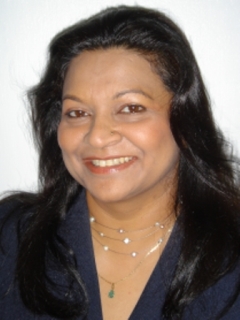UN human rights expert to gather first-hand testimonies from Eritrean refugees
April 29, 2013 (KHARTOUM) – The United Nations special rapporteur on the human rights situation in Eritrea, Sheila B. Keetharuth, is due to begin an official visit to Ethiopia and Djibouti on Tuesday to collect first-hand information from Eritrean refugees on the situation inside their country.

“Due to lack of access to Eritrea, I will engage with all others concerned by human rights in Eritrea, including those who consider themselves to be victims of alleged human rights violations, human rights defenders and other civil society actors,” Keetharuth said in a statement issued by The Office of the United Nations High Commissioner for Human Rights (OHCHR).
The visit will be Keetharuth’s first field mission since her appointment in November 2012.
Under her one-year mandate, she is tasked with carrying out investigations on the human rights situation inside Eritrea and reporting her findings to the UN Human Rights Council (UNHRC).
“I will gather first-hand information from Eritrean refugees who have fled to neighbouring countries,” she said, adding that her investigations will be strictly limited to the situation inside Eritrea.
Keetharuth’s findings will be published in her first report to the UNHRC in June.
Authorities in both Ethiopia and Djibouti have agreed to provide access to Eritrean refugee populations residing within their borders for the purposes of Keetharuth’s 10-day fact-finding mission.
The special rapporteur has made several requests to visit Eritrea, all of which were denied.
Calls by Keetharuth for Eritrean authorities to collaborate with her mandate with a view to addressing the country’s human rights challenges have also been ignored.
Asmara says it rejects her appointment, describing it as politically motivated.
During her upcoming mission, Keetharuth will interview Eritrean refugees in various locations to assess allegations of widespread and systematic violations of human rights in Eritrea contained in a number of disturbing reports received from different sources.
The special rapporteur will also attend meetings with government authorities in both countries.
SECRETIVE AND REPRESSIVE
Rights groups have described Eritrea as the North Korea of Africa, saying its secretive and repressive state apparatus headed by president Isaias Afewerki shows scant regard for human rights, imposing strict controls on personal freedom and a policy of mandatory military conscription, often for indeterminate periods.
Many female conscripts have alleged they were subject to sustained sexual abuse and harassment from their military superiors throughout their service.
According to rights groups, arbitrary, indefinite and incommunicado detention is routine, with summary executions and the systematic torture of those who oppose the regime commonplace.
“Eritrea is a country where no human right is respected, be it the choice of religion, the right to a fair trial, the right to vote in free elections, the right to leave town looking for food and work, the right not to join the army, not to be sexually molested, tortured, beaten, and even killed”, Elizabeth Chyrum, director of London-based NGO Human Rights Concern-Eritrea, said partly in an open letter to British foreign secretary William Hague on Friday.
Keetharuth plans to release her preliminary findings on the human rights situation in Eritrea at the conclusion of her field visits on 9 May.
A lawyer from Mauritius, Keetharuth has been involved in human rights issues in Africa for over two-and-a half-decades. She also worked as a broadcaster for over eight years.
In 2011, she was awarded a medal of honour by the Madrid Bar Association in recognition of her human rights work on the African continent.
The UNHRC approved her appointment for a one-year mandate during its 21st regular session in September 2012, with Keetharuth taking up her functions the following month.
(ST)
